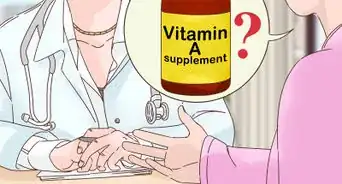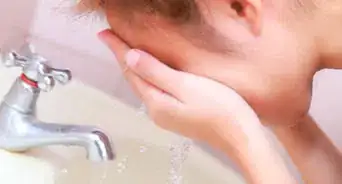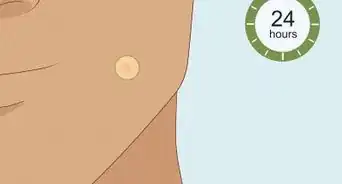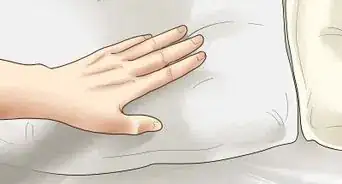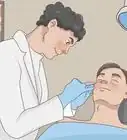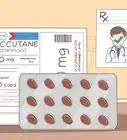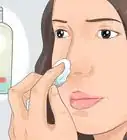This article was medically reviewed by Tymia Yvette. Tymia Yvette is a Makeup and Lash Artist and the founder of Tymia Yvette Beauty LLC, a makeup artistry and lash extension company focused on customized beauty services based in Baltimore, Maryland. Trained by MAC Cosmetics, Tymia's work has been featured in the Bravo A-List Awards 2008, the BET Honors Award Show in 2011, 2012, and 2013, the Mercedes-Benz New York Fashion Week 2011, 2012, and 2013, and the White House Correspondent's Dinner in 2014. She has also provided makeup and lash services for the Betsy Royal Casting Agency and the Baltimore Raven's cheerleading squad from 2010 to 2012. Her clients include Terrence Howard, Torrey Smith, Lester Holt, Adrienne Lofton, and Natasha Hastings. She has been awarded WeddingWire's Couple's Choice Award in 2017, 2018, and 2019.
There are 18 references cited in this article, which can be found at the bottom of the page.
wikiHow marks an article as reader-approved once it receives enough positive feedback. In this case, 100% of readers who voted found the article helpful, earning it our reader-approved status.
This article has been viewed 458,478 times.
Acne is most commonly associated with teenagers, but one can have this affliction at any age. No one knows exactly what triggers acne, but it is commonly brought on by stress, hormones, and skin irritations. Unfortunately, sometimes acne not just in a spot or two, but in a concentrated area--otherwise known as a "breakout". Fortunately, there are ways to treat such a situation. It will not disappear overnight, but by gently treating mild and moderate breakouts you will look better soon.
Steps
Treating the Breakout
-
1Wash your face--gently. Remove any makeup first with a makeup removing wipe or solution. Use clean hands instead of a washcloth, which can irritate your skin and wash with a gentle cleanser containing benzoyl peroxide. Use lukewarm water, since hot water can dry out and irritate your skin. If you use water that is too cold, then your pores can close up.[1]
- Always wash your hands first.[2]
- You should wash your face twice a day, probably once in the morning and once at night to remove makeup. Avoid washing your breakout too much, because doing this can irritate your skin and actually make it worse.
- Use a gentle cleanser with benzoyl peroxide. Benzoyl peroxide kills bacteria that can cause acne. It can be found in many over-the-counter face cleansers at pharmacies, grocery stores, and beauty stores.
- Use a very soft towel to carefully pat your face dry. Do not rub the towel over your skin.
-
2Apply toner with salicylic acid after your face is dry. Pour toner onto a cotton swab and gently wipe it over your face. Salicylic acid will reduce redness and inflammation of your acne. You can buy toner with salicylic acid wherever face products are sold.[3]Advertisement
-
3Spot treat acne with benzoyl peroxide. In addition to cleansers, benzoyl peroxide also comes as a spot treatment. Put a dab of the treatment directly on your pimples. This can speed up the healing process, although you may have a little irritation while it heals.
-
4Put a non-comedogenic moisturizer on your face. Once your toner dries, softly apply a non-cosmedogenic moisturizer. Non-comedogenic means that it is designed to not clog pores. This should be marked on the label of the moisturizer.[4]
-
5Wear a sunscreen with zinc oxide. Put the sunscreen on your face 15 minutes before you go outside. The sunscreen will protect your skin from the sun, and the zinc can kill bacteria that might contribute to your acne.
-
6Try a home remedy. You may opt to look to your kitchen before purchasing acne treatments. While many of these lack scientific backing, many people claim they help clear up breakouts.
- As with any acne treatment, watch your skin for signs of irritation after trying any new treatment.
- Lemon juice is a popular at home treatment. Simply dab your blemishes with a cotton ball soaked in lemon juice. Let sit for thirty minutes, then rinse with cold water. Lemon juice is a disinfectant that can kill the bacteria causing acne. It is also a natural exfoliant and can lighten the skin which can hide inflammation from blemishes.
- Honey is well known for its antiseptic and antibacterial properties. While you can apply it directly to the skin, let sit, and then rinse off with water, you can also make an herbal honey mask. Combine honey with milk, applesauce, yogurt, aloe vera, or egg white and apply to your skin. Let sit and then rinse off with water.[5]
- Avoid using toothpaste, which can actually trigger pimples and cause allergic reactions.[6] Likewise, you should avoid applying crushed aspirin, since it could also irritate your skin.[7]
-
7Apply a commercial topical treatment. Most stores which carry health and beauty products will also have acne treatments. Common ingredients for these products include benzoyl peroxide, salicylic acid, and tea tree oil. [8] Pay attention to how your skin reacts and stop using if you notice inflammation, irritation, or dryness.
- Benzoyl Peroxide is used to kill bacteria that can cause acne, but it may take up to four weeks to notice results. Salicylic Acid can unclog pores and reduce redness or swelling. It too requires time and constant use. Tea Tree Oil is also a milder way to kill bacteria that causes acne. Be sure to dilute it before applying.[9]
- Most moderate acne will require a combination of treatments. If your acne doesn't start clearing up after about six weeks, you may need to get a prescription for a systemic treatment.
- Often, there is no simple way to know what will work for you, as what works with one person will not work for another. A lot will come down to trial and error.
- In general, it is best to try a product with a lower dose of active ingredient, rather than go for the higher. The more active ingredient, the more likely there will be drying, irritation, or other reactions.
-
8Consult a medical professional. If over-the-counter treatments are not enough, you may need to go to a medical professional, such as your general practitioner or dermatologist. A general practitioner may be able to rule out other conditions that can be confused with acne, look at your overall approach, and prescribe medications like antibiotics or Retin-A. Dermatologists are experts in treating skin conditions, and can also be helpful in coming up with the right treatment for you.
- Oral treatments are often prescribed by a dermatologist and include antibiotics, retinoids or vitamin A derivatives, and oral contraceptives (for females). Oral treatments are used for moderate to severe acne and may have noticeable side effects.[10]
- Antibiotics are usually prescribed to treat the inflammation of severe acne. Most oral antibiotics are used for less than six months, since your they will gradually lose effectiveness. For this reason, oral antibiotics are often used in addition to other treatments that focus on the cause of your acne.[11] Examples of oral antibiotics include tetracycline, minocycline, and doxycycline.
- Oral retinoids or vitamin A derivatives are reserved for the most severe acne that has not responded to other treatment. Side effects of Isotretinoin include increased risk of depression, suicide, and inflammatory bowel disease. Pregnant, nursing, or women not using contraception should never take Isotretinoin due to the risk of severe birth defects.[12]
- Oral contraceptives can only be used by women since they contain "female" hormones that counteract "male" hormones that can trigger acne. (Both men and women have these hormones, but an imbalance can trigger acne). [13] Although uncommon, side effects can be noticeable and in some cases, treatment must be agreed to by your gynecologist. Like oral antibiotics, oral contraceptives will only be effective for several months before gradually losing potency.[14]
Concealing the Breakout and Caring for Your Skin
-
1Rub ice cubes over blemishes to reduce swelling and redness. Be sure to hold ice in a soft paper towel to avoid a mess and hold it in place for just a minute or two.[15]
-
2Cover up the blemishes. Use an oil-free and non-comedogenic concealer that will provide enough coverage to hide the breakout. Be sure it is close enough to your skin tone to not be noticeable. [16] You may be able to find a concealer with salicylic acid. Very gently blend the concealer into the area surrounding the blemish so that the makeup is not noticeable.
- If you can, try to avoid using makeup during a breakout. Makeup tends to clog pores, even if advertised as non-comedogenic. This can help your skin heal faster and can prevent further irritation from the fragrance, oil, and chemicals in makeup.
- If you cannot avoid make-up, try to take it off as soon as feasible. Just using soap and water may not be enough. Be gentle when washing your face with lukewarm water and a mild cleanser, but be sure to remove every last trace of the day's makeup.[17] [18] Do this every day to help your skin heal. Be sure to rinse off every bit of cleanser too.
- Double-check that your makeup products aren't expired before you apply anything.[19]
-
3Use a powder to set the concealer. This should be applied evenly all over your face to create a uniform tone. Avoid using heavy foundation with powder and blush, as these can be harsh on your already sensitive skin.[20] Keep your makeup minimal during a breakout.
-
4Clean items that come into contact with your face. Makeup brushes should be washed and air dried weekly to prevent bacteria from growing.[21] [22] Wash your pillowcases once a week (or more) since oil from your face and hair will build up. Frequently wipe down your cell phone with disinfecting wipes since it comes into direct contact with your skin.[23]
- To go the extra mile, clean your makeup tools after each use.[24]
Preventing Breakouts
-
1Freshen up your diet. A low-glycemic diet can help reduce inflammation, which may contribute to your acne. While eating greasy food won't cause acne, eating fresh fruits and vegetables containing lots vitamin A can improve your complexion.[25]
- Some foods that are high in vitamin A include sweet potatoes, carrots, dark leafy greens, dried apricots, melons, and tuna.
-
2Cut out or reduce the sugar and simple carbohydrates in your diet. These make your blood sugar spike which triggers insulin production. Insulin production also leads to oil production which can clog up your pores.[26]
-
3Reduce stress. While stress itself does not actually cause acne, it can lead to a more noticeable breakout. Find relaxing things to do on a regular basis. Meditation, exercise, reading, or learning a new skill are great things to add to your schedule and might keep the breakouts at bay.
- Stressing about acne can make it even worse. Not only will your mental state aggravate acne, but getting too aggressive about treating acne (such as scrubbing, harsh chemicals, or too frequent washing) can also aggravate the problem.
- Typically, you are the only person who notices your own acne. Other people will usually not scrutinize your skin as closely as you do.
- Use your acne regimen as an opportunity to relax and take care of yourself. The actions of washing the face, drying the face, and smoothing on moisturizer all massage and can help you feel good. It can be a calming ritual in your day. Slow down and enjoy. An approach like this can help you relax, feel good about taking care of your skin, and make you feel better about yourself.
- A typical acne breakout will generally resolve itself within a few days, even if untreated.
- If you take on a new sport or like to exercise, be sure to wear loose fitting clothing so that your skin doesn't come into prolonged contact with sweat. Also, shower immediately after so that the oil and bacteria doesn't sit on your skin.[27]
Expert Q&A
-
QuestionHow do I stop my face from breaking out when wearing makeup?
 Tymia YvetteTymia Yvette is a Makeup and Lash Artist and the founder of Tymia Yvette Beauty LLC, a makeup artistry and lash extension company focused on customized beauty services based in Baltimore, Maryland. Trained by MAC Cosmetics, Tymia's work has been featured in the Bravo A-List Awards 2008, the BET Honors Award Show in 2011, 2012, and 2013, the Mercedes-Benz New York Fashion Week 2011, 2012, and 2013, and the White House Correspondent's Dinner in 2014. She has also provided makeup and lash services for the Betsy Royal Casting Agency and the Baltimore Raven's cheerleading squad from 2010 to 2012. Her clients include Terrence Howard, Torrey Smith, Lester Holt, Adrienne Lofton, and Natasha Hastings. She has been awarded WeddingWire's Couple's Choice Award in 2017, 2018, and 2019.
Tymia YvetteTymia Yvette is a Makeup and Lash Artist and the founder of Tymia Yvette Beauty LLC, a makeup artistry and lash extension company focused on customized beauty services based in Baltimore, Maryland. Trained by MAC Cosmetics, Tymia's work has been featured in the Bravo A-List Awards 2008, the BET Honors Award Show in 2011, 2012, and 2013, the Mercedes-Benz New York Fashion Week 2011, 2012, and 2013, and the White House Correspondent's Dinner in 2014. She has also provided makeup and lash services for the Betsy Royal Casting Agency and the Baltimore Raven's cheerleading squad from 2010 to 2012. Her clients include Terrence Howard, Torrey Smith, Lester Holt, Adrienne Lofton, and Natasha Hastings. She has been awarded WeddingWire's Couple's Choice Award in 2017, 2018, and 2019.
Makeup & Lash Artist Good makeup application routines help limit acne and irritation! Wash your hands and clean your face thoroughly before applying any makeup. Also, disinfect any surface areas where your makeup or makeup tools will go.
Good makeup application routines help limit acne and irritation! Wash your hands and clean your face thoroughly before applying any makeup. Also, disinfect any surface areas where your makeup or makeup tools will go.
Warnings
- Avoid using an acne treatment right before a big event. Most acne medications need several weeks to really work and your skin might have a reaction to a new product.⧼thumbs_response⧽
- Use benzoyl peroxide with discretion. It's harsh, so using too much too often can lead to dry skin. It can also fade your fabrics, so use caution when applying.[28]⧼thumbs_response⧽
- If you have severe acne, nodules, or cysts, you should go to a dermatologist. They might need to write a prescription to treat the breakout.[29]⧼thumbs_response⧽
Things You'll Need
- Cleanser
- Non-comedogenic moisturizer
- Acne treatment containing either benzoyl peroxide, salicylic acid, or tea tree oil
- Oral medications, if prescribed by your dermatologist
- Ice, optional
- Full-coverage concealer
- Powder
References
- ↑ http://www.webmd.com/skin-problems-and-treatments/teen-acne-13/10-tips-for-preventing-pimples
- ↑ Tymia Yvette. Makeup & Lash Artist. Expert Interview. 23 April 2020.
- ↑ https://www.facingacne.com/salicylic-acid-acne-pros-cons
- ↑ http://www.webmd.com/skin-problems-and-treatments/teen-acne-13/10-tips-for-preventing-pimples
- ↑ http://www.ncbi.nlm.nih.gov/pmc/articles/PMC3609166/
- ↑ http://www.webmd.com/skin-problems-and-treatments/acne/ss/slideshow-acne-cover-ups
- ↑ http://www.webmd.com/skin-problems-and-treatments/acne/ss/slideshow-acne-cover-ups
- ↑ http://www.webmd.com/skin-problems-and-treatments/acne/understanding-acne-treatment
- ↑ http://www.webmd.com/skin-problems-and-treatments/acne/ss/slideshow-acne-cover-ups
- ↑ http://www.webmd.com/skin-problems-and-treatments/acne/ss/slideshow-acne-dictionary
- ↑ http://www.skincarephysicians.com/acnenet/prescriptmeds.html
- ↑ http://www.webmd.com/skin-problems-and-treatments/acne/understanding-acne-treatment?page=2
- ↑ http://www.webmd.com/skin-problems-and-treatments/acne/understanding-acne-treatment?page=3
- ↑ http://www.webmd.com/skin-problems-and-treatments/acne/understanding-acne-treatment?page=3
- ↑ http://www.webmd.com/skin-problems-and-treatments/acne/ss/slideshow-acne-cover-ups
- ↑ http://www.webmd.com/skin-problems-and-treatments/teen-acne-13/10-tips-for-preventing-pimples
- ↑ http://www.makeup.com/12-tips-for-helping-makeup-and-breakouts-co-exist/
- ↑ Tymia Yvette. Makeup & Lash Artist. Expert Interview. 23 April 2020.
- ↑ Tymia Yvette. Makeup & Lash Artist. Expert Interview. 23 April 2020.
- ↑ http://www.marieclaire.com/hair-beauty/how-to/acne-breakouts
- ↑ http://www.womenshealthmag.com/beauty/cause-acne?page=2
- ↑ Tymia Yvette. Makeup & Lash Artist. Expert Interview. 23 April 2020.
- ↑ http://www.womenshealthmag.com/beauty/cause-acne?page=3
- ↑ Tymia Yvette. Makeup & Lash Artist. Expert Interview. 23 April 2020.
- ↑ http://www.webmd.com/skin-problems-and-treatments/teen-acne-13/acne-foods?page=2
- ↑ http://www.webmd.com/skin-problems-and-treatments/teen-acne-13/acne-foods?page=1
- ↑ http://www.webmd.com/skin-problems-and-treatments/teen-acne-13/10-tips-for-preventing-pimples?page=2
- ↑ https://www.aad.org/dermatology-a-to-z/for-kids/about-skin/acne-pimples-and-zits/treating-pimples
- ↑ http://www.webmd.com/skin-problems-and-treatments/acne/ss/slideshow-acne-dictionary
About This Article
To get rid of a breakout, start by washing your face with a gentle benzoyl peroxide cleanser to treat the pimples directly. Pat your face dry, then moisten a cotton ball with a salicylic acid toner and wipe it over your face. You can then spot treat stubborn acne with benzoyl peroxide cream, but apply it sparingly since it can irritate skin! Finish your routine with a non-comedogenic moisturizer to hydrate your skin without clogging pores. For tips on concealing and preventing breakouts, read on!
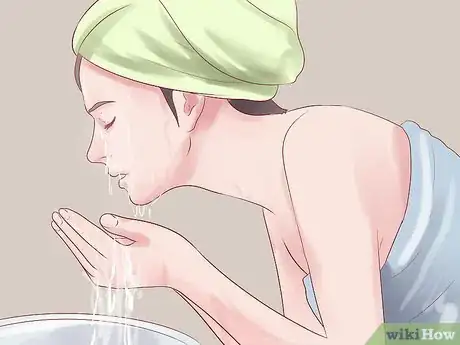

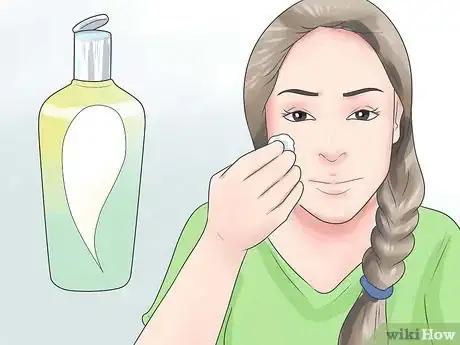
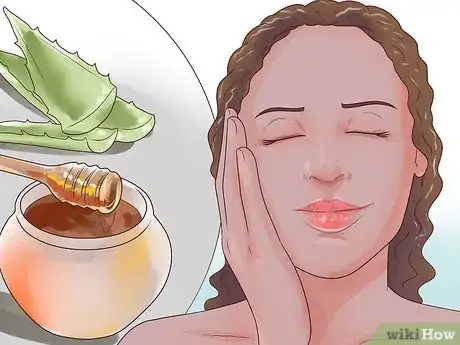
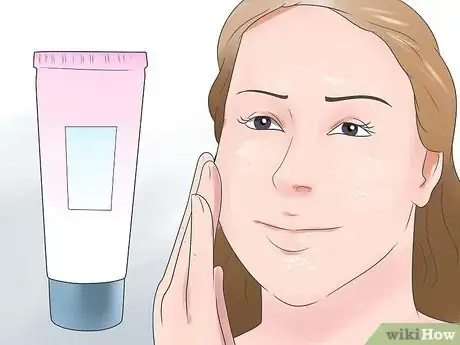
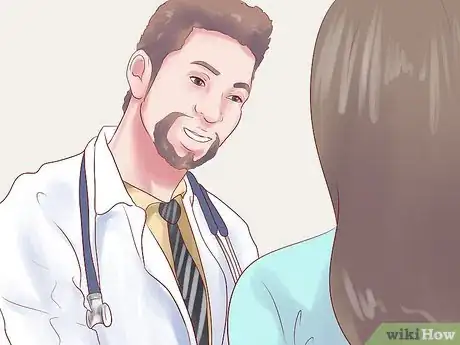
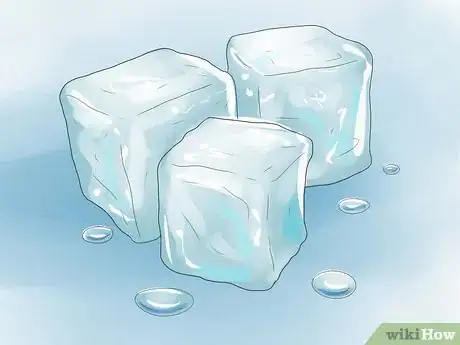
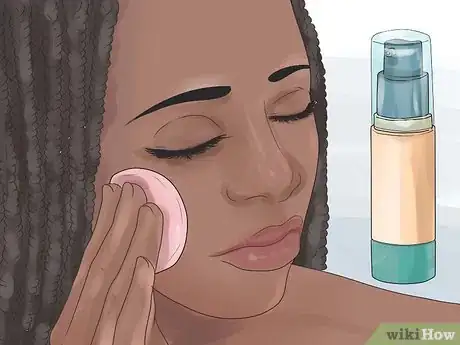
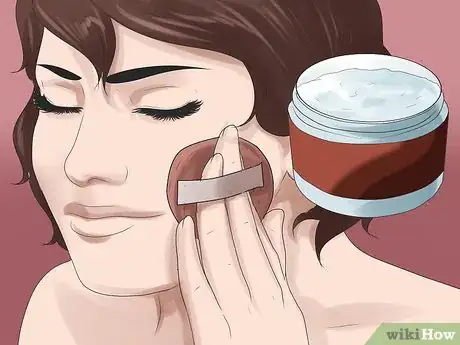
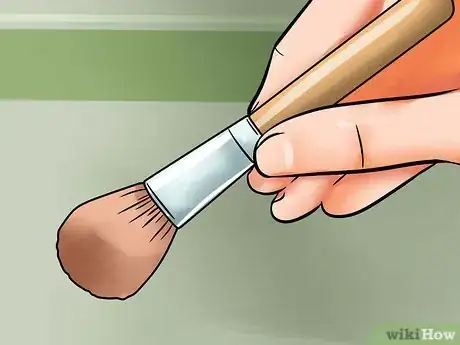
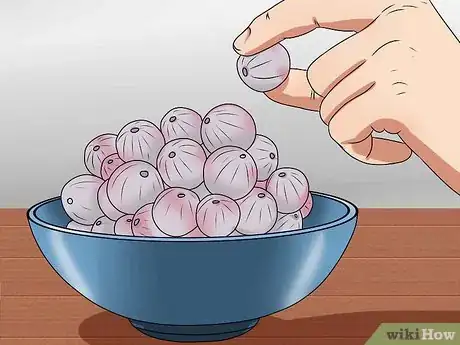
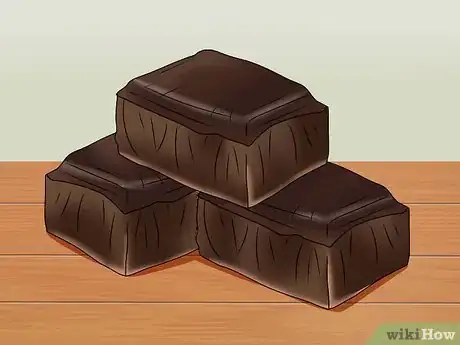
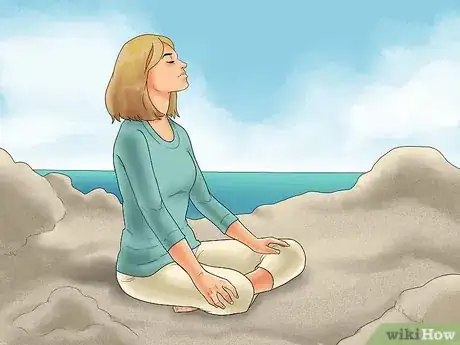
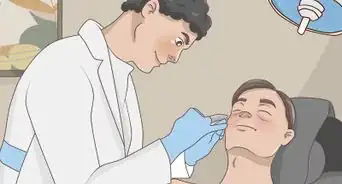
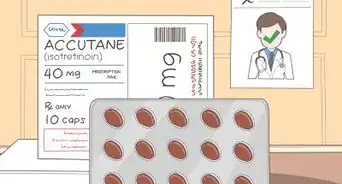

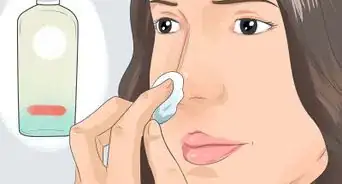
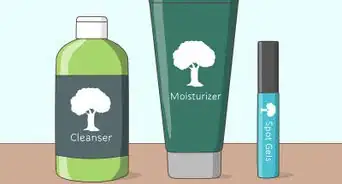
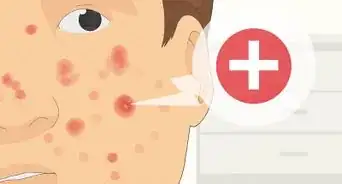
-Step-8-Version-2.webp)
